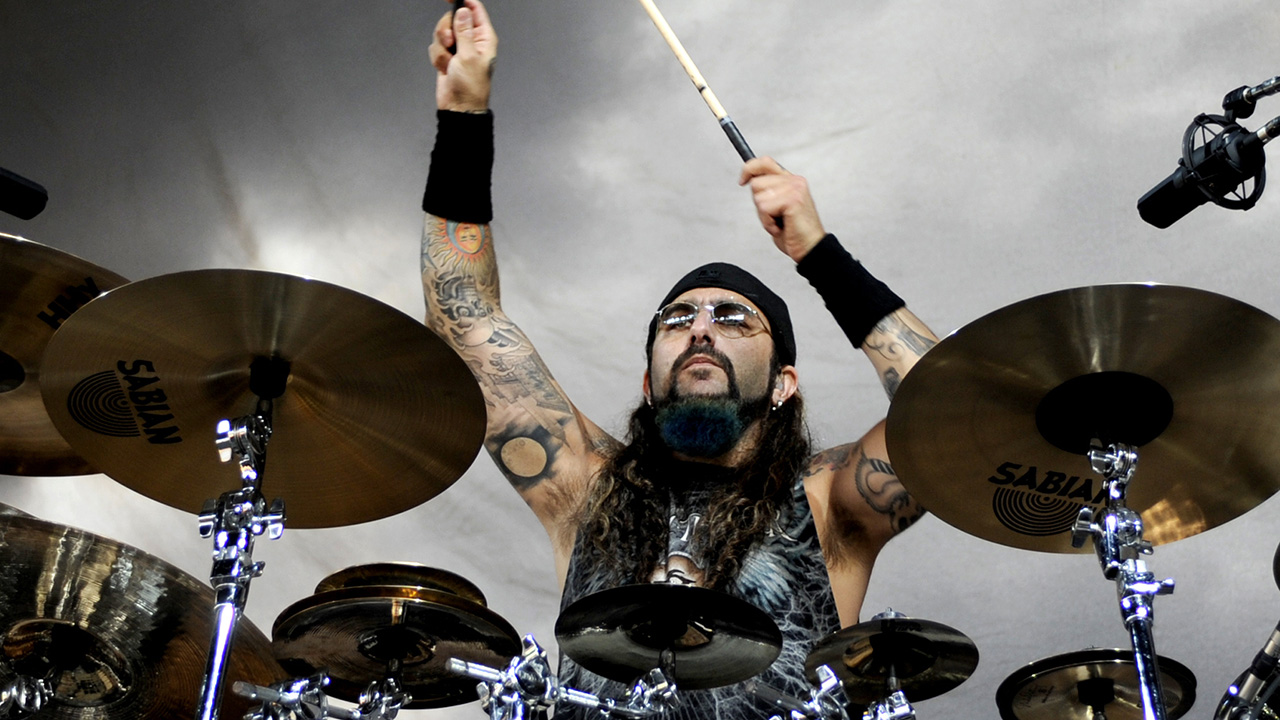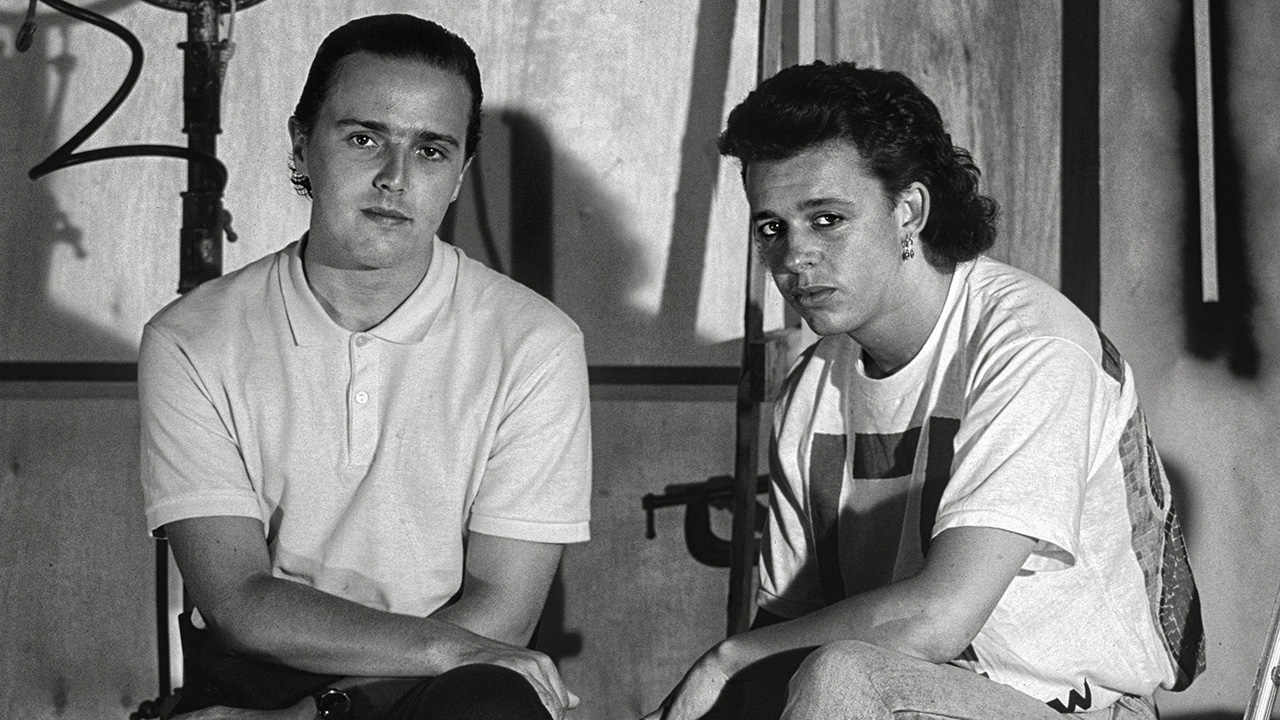“Delivering a cerebral, skilful and inventive blend of prog and metal, they’ve remained proudly on the periphery of fashion”: The best Dream Theater songs featuring Mike Portnoy (to date)
In anticipation of the drummer’s appearance on their 16th album, we present a list that many thought would never be added to

Formed after leaving the Berklee College Of Music in 1985, Dream Theater became synonymous with delivering a cerebral, skilful and inventive blend of prog rock and metal, they’ve remained proudly on the periphery of musical fashion. Aside from a solitary hit single they’ve never been ‘cool’ – instead they gradually amassed a vast loyal fanbase by word of mouth, who in turn transformed the underground band into arena fillers.
In 2015 Prog took a look at their output to date and selected the cream of the crop. In the light of co-founding drummer Mike Portnoy’s return to the fold, and in anticipation of his appearance on what will be their 16th album, the version below focuses more tightly on the best Dream Theater songs with Portnoy aboard.
Only A Matter Of Time (When Dream and Day Unite, 1989)
Taken from their first album, while the late Charlie Dominici was still their singer, it epitomised the approach Dream Theater intended to take. Awash with progressive keyboards and raging guitars, it’s a carefully crafted song that showcases their technically adept, college-based musical education.
Lyrically, the song dealt with the band’s hopes of making a breakthrough – and it proved to be prophetic. It may have taken another three years to get noticed, but this song is a proud and direct statement of intent.
Pull Me Under (Images and Words, 1992)
This single was their only foray into the charts – an unlikely choice given the album version extended to over eight minutes. Yet with hefty editing, it was heavily rotated on MTV, and the band’s trademark Rush-meets-Metallica sound was warmly embraced by thousands of new fans. Blending whirling keyboards and a typically driving guitar, it was a central part of an album that was crammed with tracks of a similarly substantial calibre.
Metropolis Part 1 (Images and Words, 1992)
Admittedly the sleigh bells that open this track make you think of festive reindeers – or Awaken by Yes – but this song arguably remains the most outstanding they’ve ever recorded. An almost constant presence in live sets ever since, it would become a blueprint for many of their future epics. Swirling keyboards, giddying changes of pace, consummate musicianship and no moments of superfluity, the song has defined the band’s approach.
Lie (Awake, 1994)
The lyrics to this single were written by keyboard player Kevin Moore just prior to his departure from the band, and hinted at his feelings of detachment from his soon-to-be ex-colleagues.
The song is notable for the aggressive tone of James LaBrie’s vocals that marked a departure from his previous style. “My vocals are a lot more varied and aggressive, so people will think ‘They’ve changed singers again’,” he joked at the time.
Peruvian Skies (Falling Into Infinity, 1997)
A lyrically shady track from their most commercial album, Peruvian Skies includes all the facets of great Metallica and Pink Floyd songs, but dealt with the uncomfortable subject of child abuse.
With an unbridled aggressive guitar that inventively contrasts and intermingles with more laid-back melodies, it’s a high point on an overlooked album, often harshly lambasted for its accessibility. The closing guitar riff in particular genuinely equals those found on Metallica’s Black Album.
Sign up below to get the latest from Prog, plus exclusive special offers, direct to your inbox!
The Spirit Carries On (Metropolis Pt. 2: Scenes from a Memory, 1999)
Highlighting their mellower side, The Spirit Carries On was the final track on the band’s fifth studio release and first concept album. Lyrically delving into the dark topic of death and rebirth, it’s a musically uplifting song with a triumphant ending. Melodically beautiful, the combination of Jordan Rudess’ piano and John Petrucci’s Dave Gilmour-style solos are immensely evocative.
The Dance Of Eternity (Metropolis Pt. 2, 1999)
Anyone wanting to try and explain the appeal of Dream Theater to friends should turn to this instrumental track for audio support. Indeed, the talents of the musicians within the band are often overpowering, with Mike Portnoy’s drumming and John Myung’s bass being allowed space to breathe in a track that showcased their technical chops, especially when performed live.
Mixing metal, jazz and prog, all constructed around a dizzying array of time signatures, it remains a stunning recording in their back-catalogue.
As I Am (Train of Thought, 2003)
The band’s overtly heavy 2003 release was a specific attempt by to record a “classic heavy metal album” – and this track, with a tolling, Black Sabbath-esque bass line opening, epitomised that approach.
It may lack some of their more subtle moments; but by applying a metal frame to their progressive mindset, any suggestions the band were one-dimensional were firmly dismissed. The scintillating guitar solo remains one of Petrucci’s greatest.
Octavarium (Octavarium, 2005)
“We were looking for that ultimate Yes or Genesis influence for that track,” said Rudess at the time – and they succeeded in their aim. Lasting for over 20 minutes and containing a succession of nuances that recalled those prog rock greats, it’s expansive as it is alluring.
With strings adding a fresh dimension to the band’s sound, Octavarium is an ambitious track that’s crammed with all the attributes that have made Dream Theater such a successful act.
The Count Of Tuscany (Black Clouds & Silver Linings, 2009)
Lyrically detailing a bizarre visit by Petrucci to an antiquated Italian winery, The Count Of Tuscany is another 20-minute track that encompasses every aspect of Dream Theater’s music.
From the beguiling mellow intro guitar, through the metallic riffs, to the cerebral playing and the elongated, mesmerising Petrucci solo that kicks in after 11 minutes, it’s a faultless track that would mark Portnoy’s final recorded performance with the band to date.









